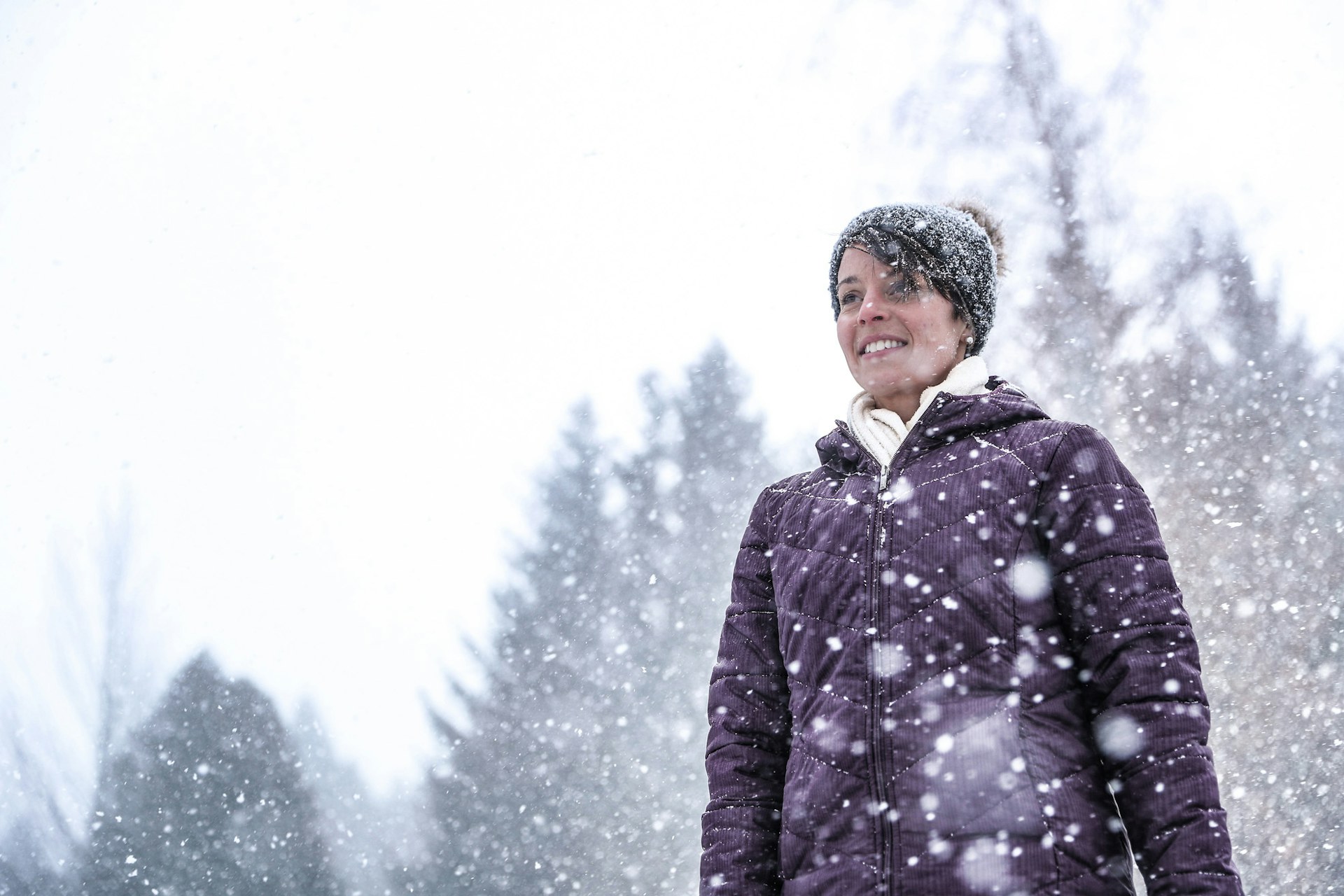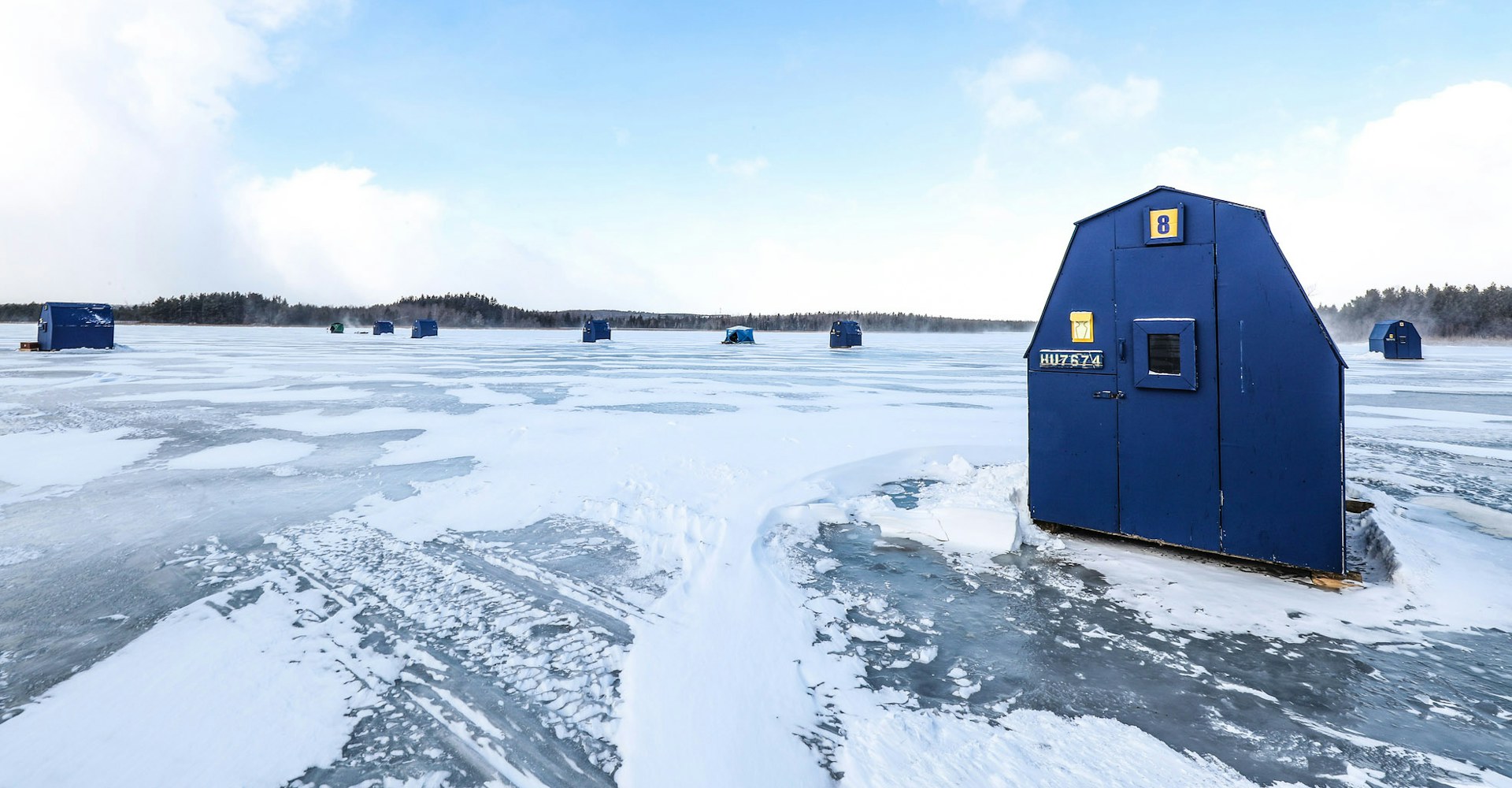Posted : January 15, 2023
Our blog is chock full of great ideas for fun things to see and do in York Durham and Headwaters. We are always adding new content and updating old posts, but sometimes you might stumble upon something from our vault. If this article has inspired you to hit the road, be sure to double-check that the featured stops in this post are still welcoming visitors.
Ice fishing. There are fewer winter experiences that are more quintessentially Canadian than gathering your friends around a frozen hole in the dead of winter, waiting for the tell-tale tug of a fishing line.
Around these parts, the ice fishing season typically starts in mid to late January and closes March 15 (the date all huts must be off the ice).
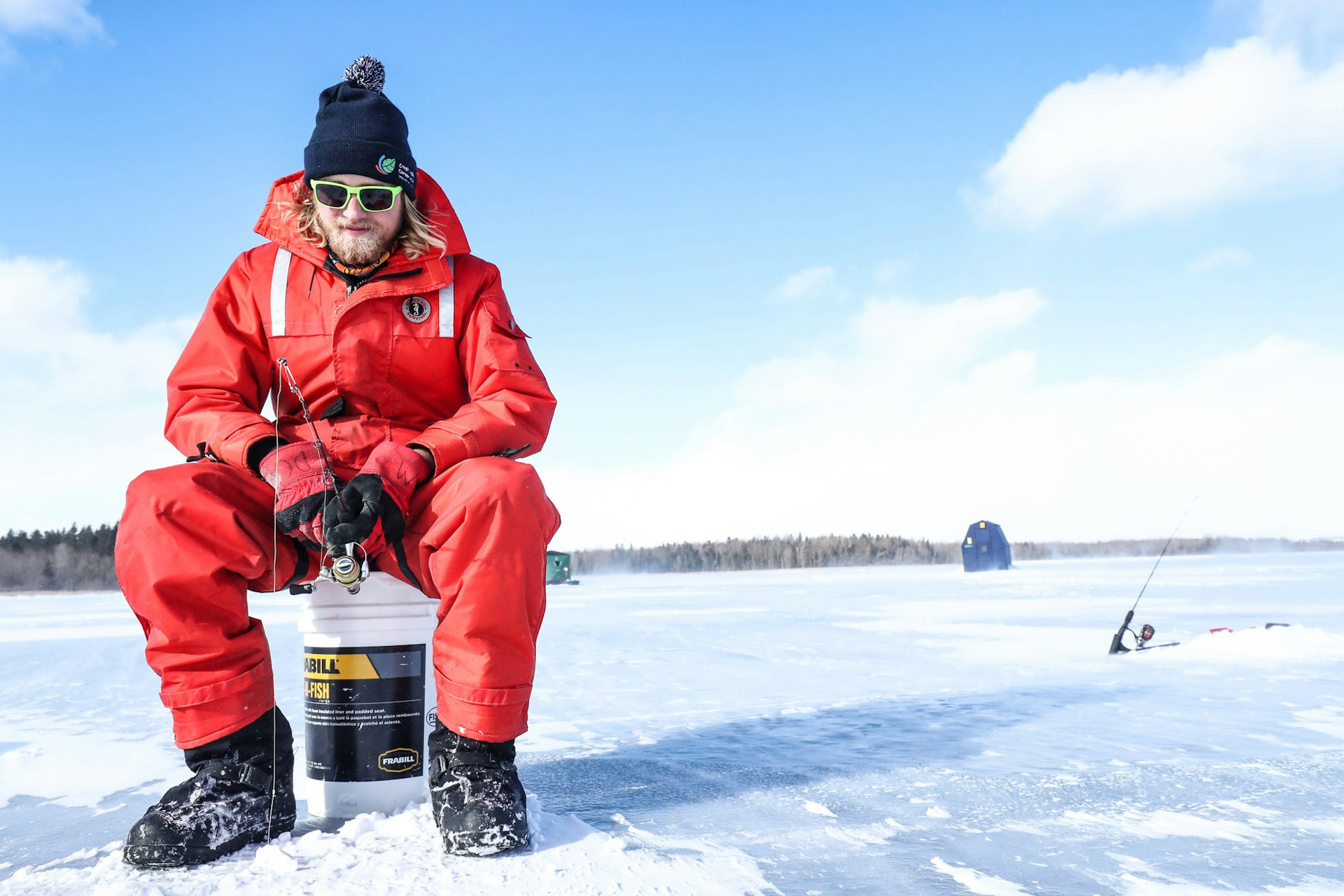
Whether you’re an avid fisherman or just curious about ice fishing, there are plenty of ice hut operators in York Durham Headwaters who can supply you with everything you need to get out on the ice this winter.
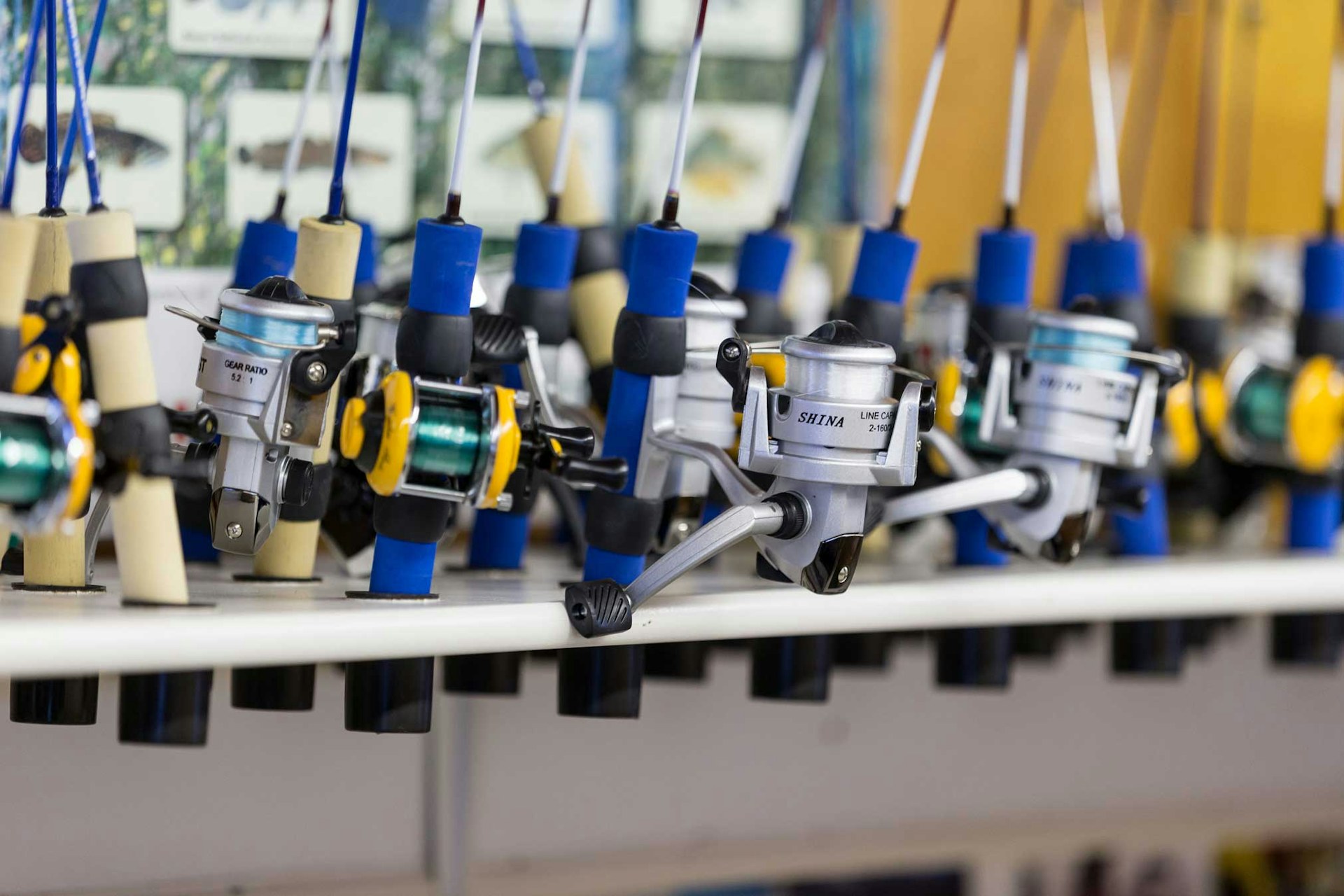
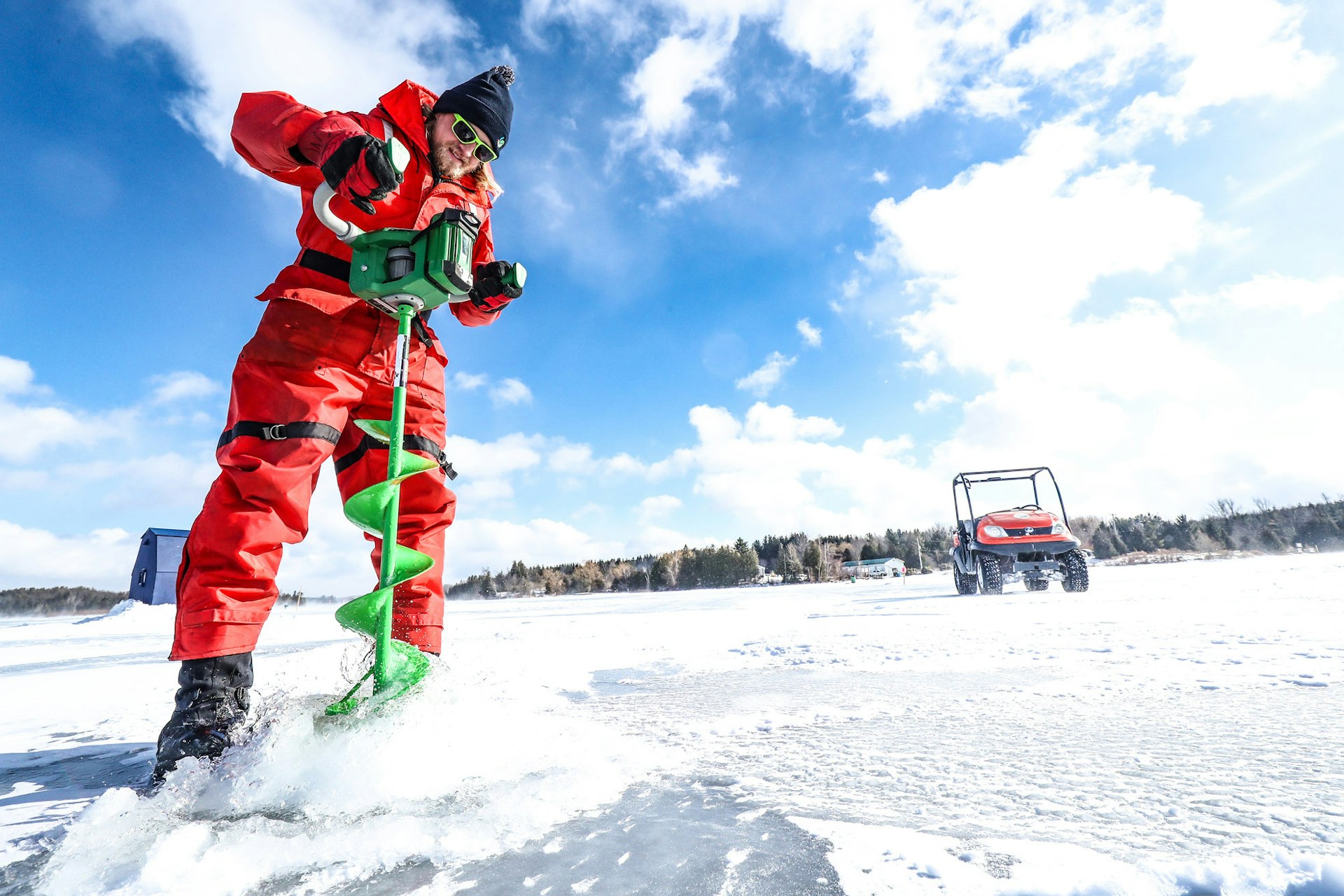
Ice Fishing Operators in YDH
-
Floyd Hales Fish Huts
1 Harbour Park Crescent, Beaverton, ON
Many conveniences are available for your fishing pleasure...
Day & Night Fishing
2 Productive Fishing Grounds
- 3 kms out (30 ft. of water) and 10 kms out (60 ft. of water)
Bungalows with barbeques
FREE… -
Mitchell's Fish Huts
6 Wellington St., at Lake Simcoe, Beaverton, ON
Ice Fishing on Lake Simcoe! Check out our TWO new 8'x16' Ice Bungalows. Featuring: $180 per person for weekend, Friday noon to Sunday noon for FOUR people, includes bait and transport!
Large 4-Man…
-
Ice Fishing Outfitters
15 Hadden Rd, above the boathouse, Sutton, ON
Ice Fishing on Lake Simcoe at Virginia Beach. Your ride to and from your Ice hut will be in our heated Bombardier. Heated and fully equipped with GPS navigation. We may also use one of our sleighs.
An…
-
Snake Island Fish Huts
967 Lake Drive North, Georgina, ON
We are located in the town of Georgina, overlooking Snake Island on Lake Simcoe. This area of the lake is famous for Jumbo Perch and Pike. The deeper waters on the northern end of Snake Island are prime…
-
Hank Heyink Fish Hut Rentals
Bonnie Blvd, Sutton, ON
Hank Heyink Fish Hut Rentals has been in operation since 1953 by the Heyink family. Now owned and operated by Ken Heyink. We are located on the south shore of Lake Simcoe in Jackson's Point.
We offer…
-
Jason's Fish Huts
Jackson's Point, ON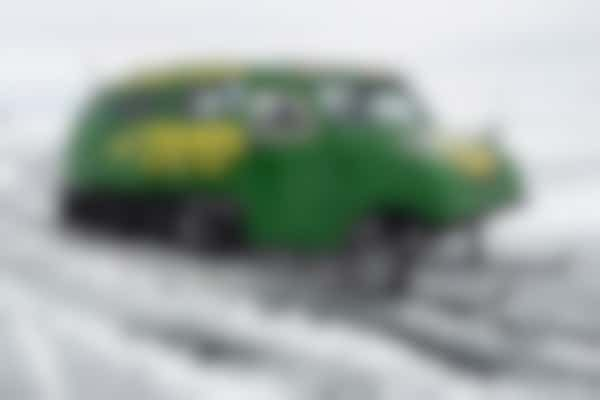
Jason's Fish Huts is a professional ice fishing service on Lake Simcoe running out of Sutton, Ontario. With 30 years under his belt, Jason provides you with a comfortable experience creating memories for…
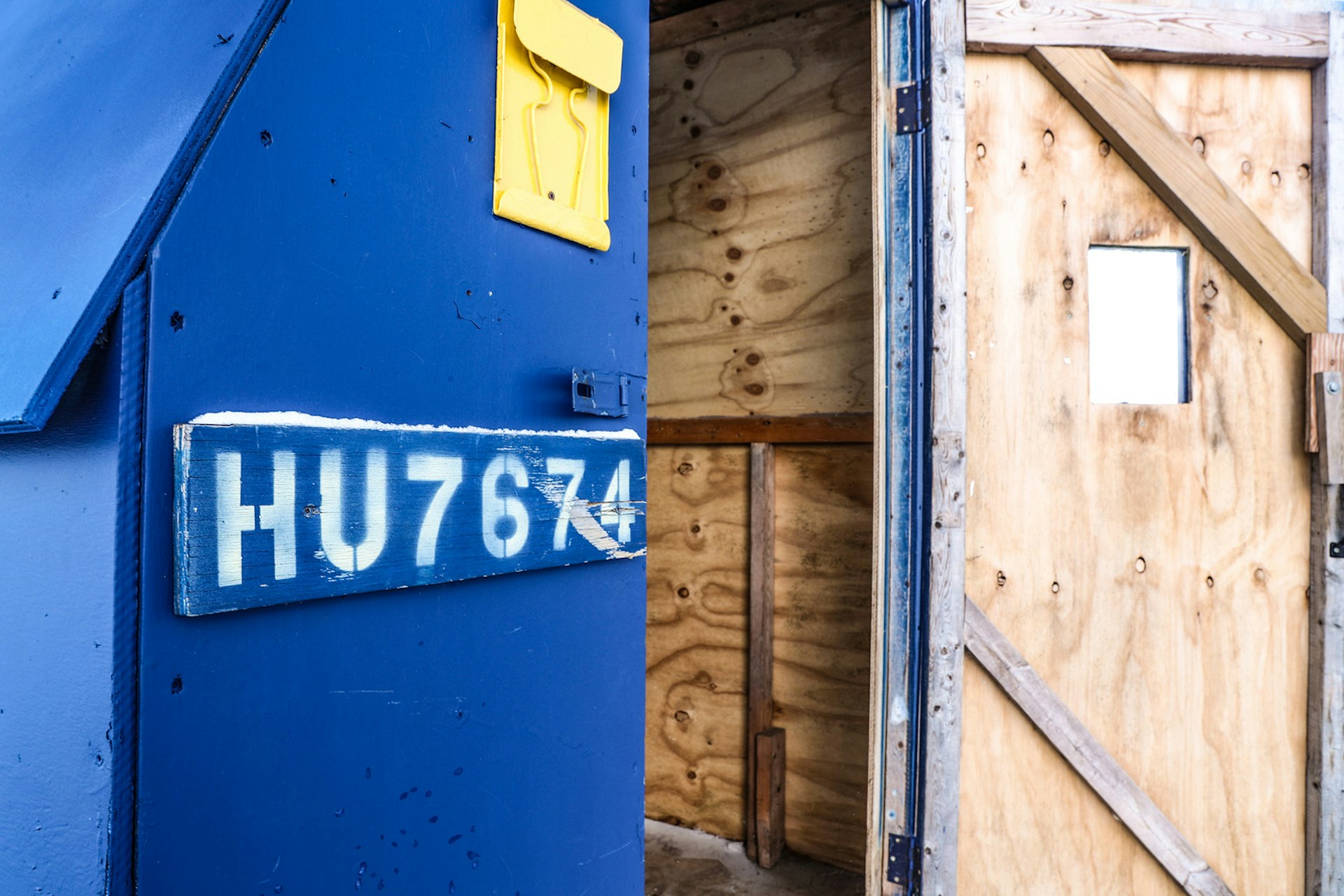
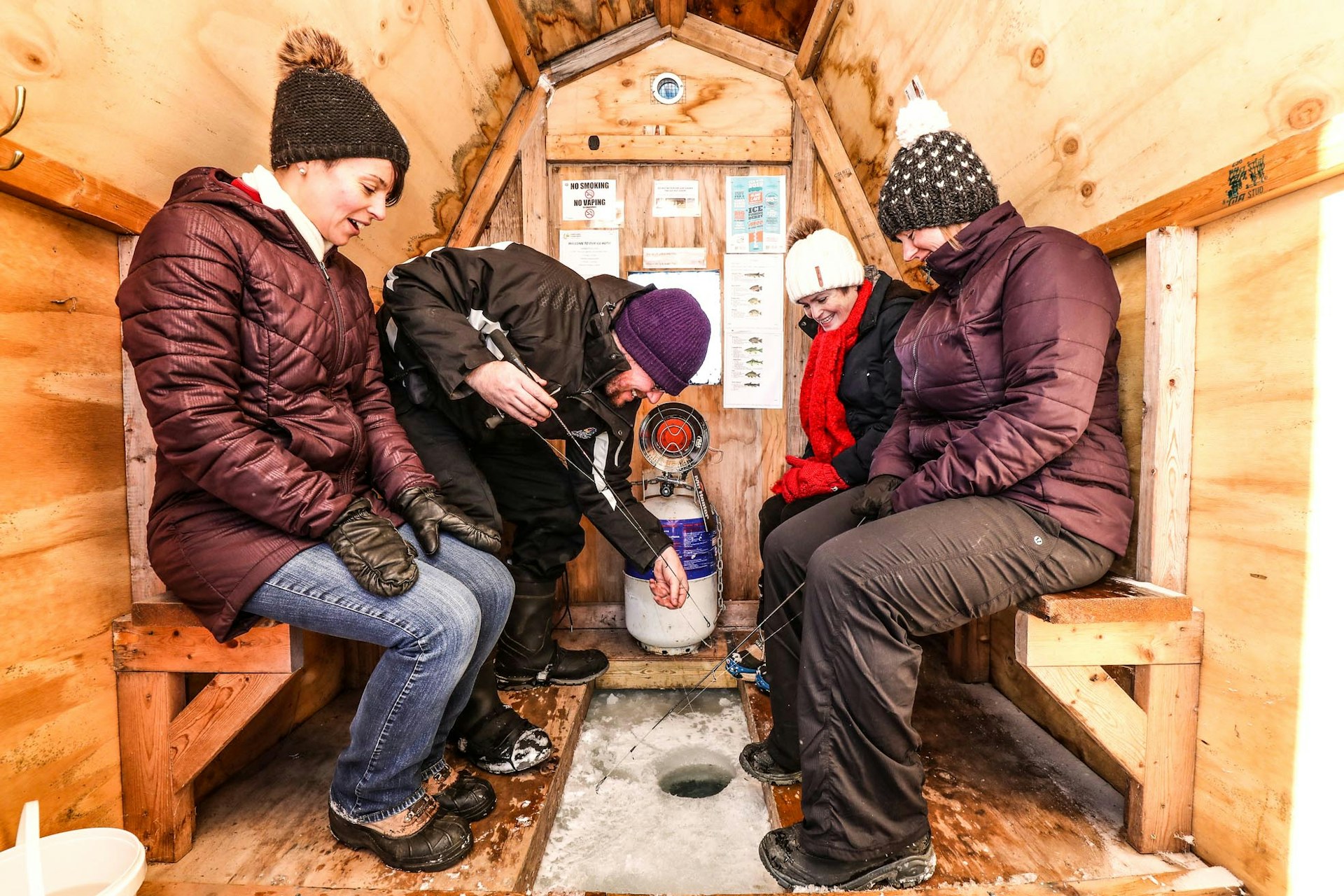
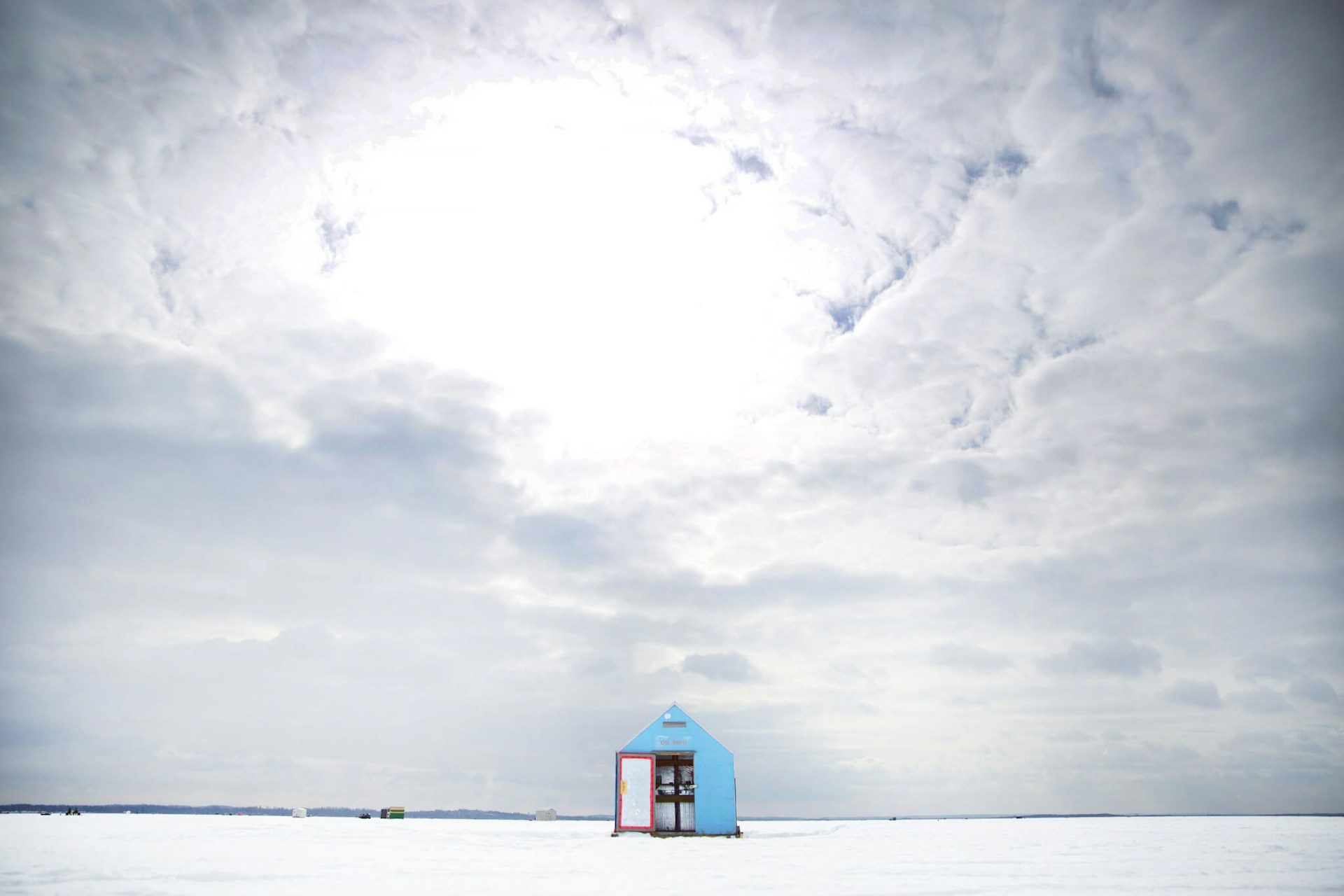
Ice Fishing on Lake Simcoe
Lake Simcoe is one of the most popular locations in York Durham Headwaters for ice fishing and, in fact, is one of the most popular locations for ice fishing in the entire province. Lake Simcoe is renowned for its abundance of Perch, a small fish that is known to be delicious with a mild and sweet meat that is firm yet flaky in texture. Avid fishers will be pleased to know that Lake Simcoe also offers fishing opportunities that include Lake Trout, Whitefish, and Herring.
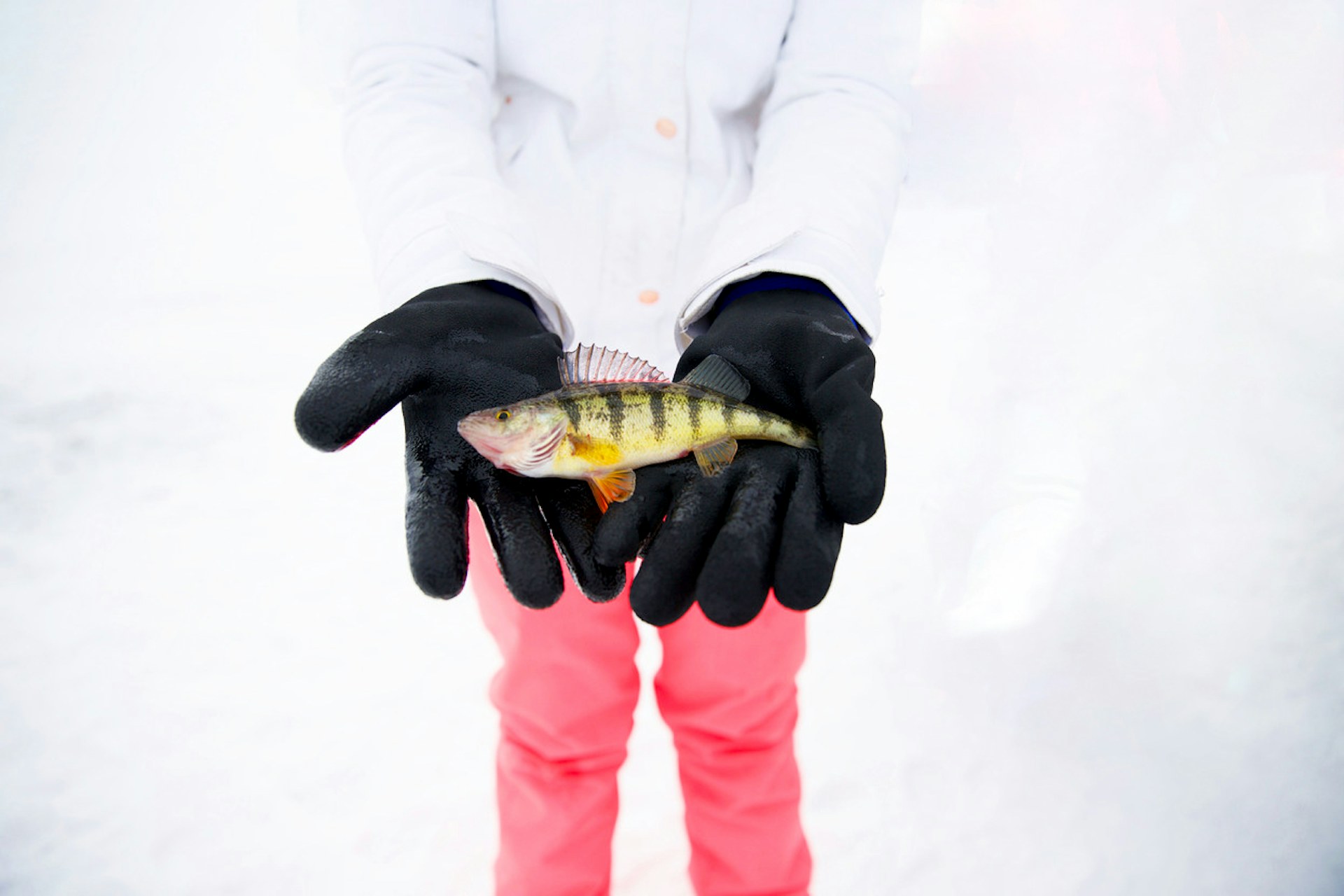
Ice Fishing at Island Lake Conservation Area
Island Lake Conservation Area is also a great place to try your hand at ice fishing. Located near Orangeville you will find the friendly staff at the park ready to assist you with anything you need.
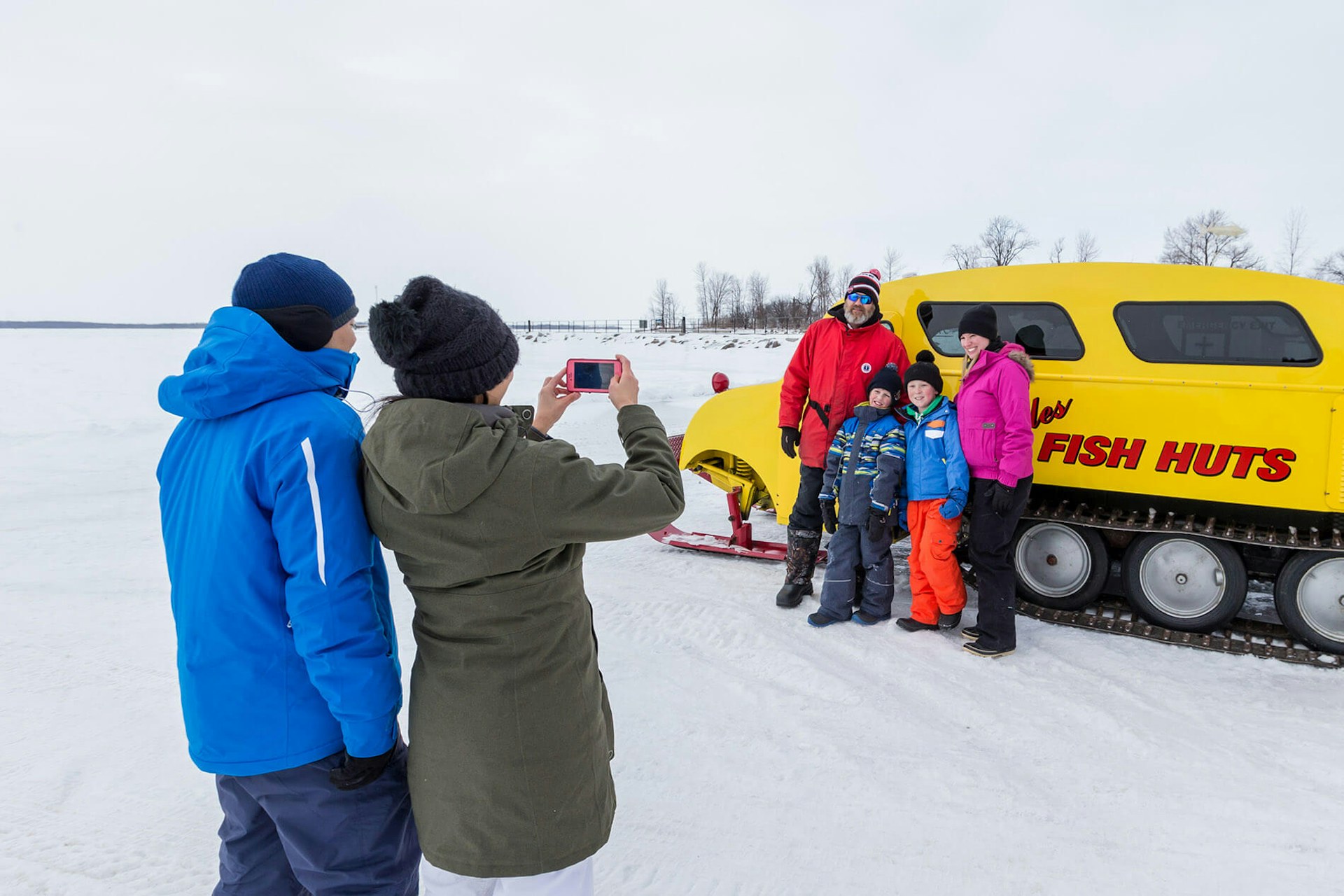
Ice Fishing Derbies
Once you catch a taste for ice fishing, you might want to consider taking part in an ice fishing derby.
Watch this space for scheduled ice fishing derbies.

Ice Safety Tips
- Ice doesn’t freeze at uniform thickness.
- Ice is often much thicker and safer near the shore than the ice that is farther out, especially at the start of winter season
- As you move further out on to the ice, regularly check the thickness with a spud bar or an auger.
- Ice that forms over moving water, like a natural spring or near the mouth of a river or stream can be weaker than the surrounding ice.
- Ice that has formed over old ice holes may be weak.
- Keep your eye out for pressure cracks, this may indicate that the ice is weak.
- The colour of the ice will give you a clue as to its integrity. Clear blue ice is strong, where as white or opaque ice is much weaker.
- Beware of ice that looks honeycombed. This indicates that the ice may be thawing.
- Driving on ice requires extreme caution, it is important to know the thickness of the ice before venturing out. Here are the recommended minimum thickness levels for safety:
- Snowmobiles: at least 20 centimetres (8 inches) of clear blue ice
- Light vehicles: at least 30 centimetres (12 inches) or more
- Double the recommended thickness if the ice is white or opaque.
- CAUTION: Heavy snow on a frozen lake or river slows down the freezing process.
These tips are provided by the Ontario Ministry of Natural Resources. You can learn more about ice fishing by visiting their ice fishing resource page.
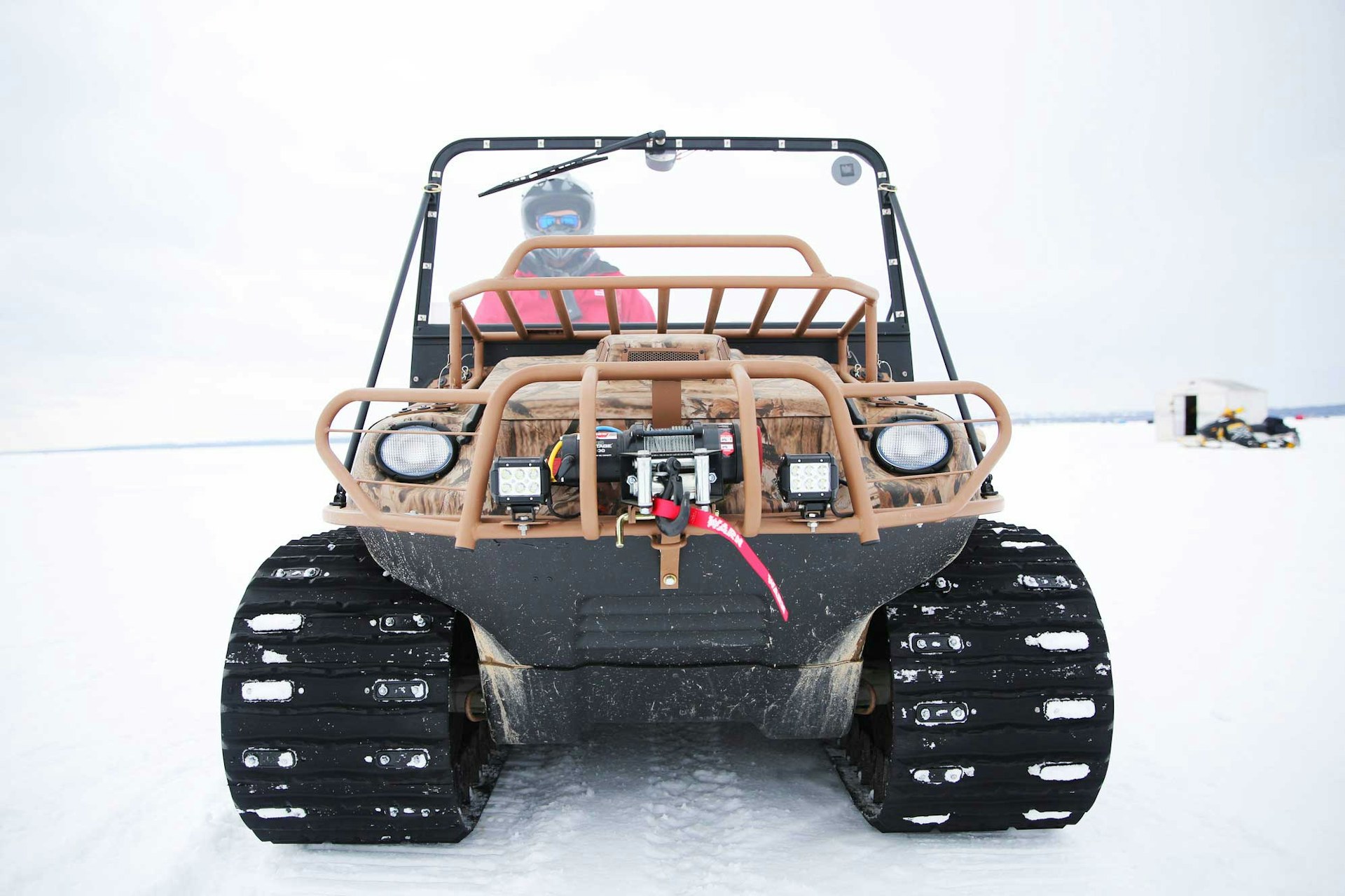
Before You Go Ice Fishing
- Ice conditions can shift quickly. If you are an inexperienced ice fisher we strongly recommended that you check in with one of our seasoned ice hut operators for ice conditions before you venture out onto the lake.
- You must have a valid fishing license. Be sure to get one before you head out to the lake.
- Implement a safety plan by letting others know where you’re planning to fish and when you plan on returning.
- Wear appropriate clothing and equipment both for safety and to ensure that you have the most comfortable and pleasurable ice fishing experience possible. We recommend warm layers of clothing, water resistant gloves and insulated boots—it can get cold out there and snow can get deep around the huts. Don’t forget your hat!
